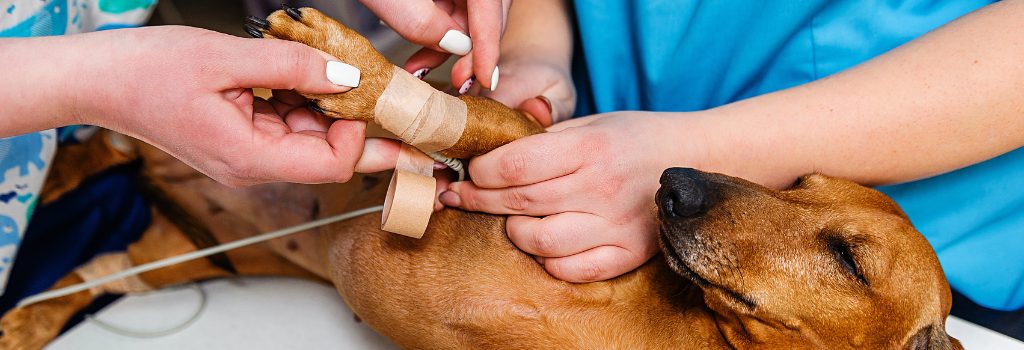Much like their human owners, dogs can suffer from cardiovascular disease. And without proper treatment, the consequences of problems affecting the heart or blood vessels are often dire. In dogs, heart disease can be either congenital (present from birth) or acquired. Acquired heart disease is the most common and occurs due to age, injury, or infection.
At Veterinary Medical Center, we understand that you may be searching for a veterinarian or seeking additional information about your dog’s diagnosis. Unfortunately, internet information isn’t the best source when it comes to something as essential as your dog’s heart, so if you suspect your dog may have heart issues, talk to your veterinarian immediately. We can also provide you with further information, as we put together these answers on dog cardiology FAQs to help you better understand what to do if your dog is suffering from cardiovascular disease. The information below comes directly from our veterinarians and is factually correct, but it’s not a substitute for advice from your veterinarian. If you don’t have a veterinarian and are looking for one in the Union City, CA area, give us a call at (510) 441-8500!
What is a veterinary cardiologist?
A veterinary cardiologist is a board-certified veterinarian who specializes in diagnosing and treating diseases of the heart. To become a veterinary cardiologist, one must complete four years of undergraduate study and four years of veterinary school. Then, they need to complete a one-year internship and spend three years in a specialized residency before passing a cardiology test to become board-certified. With fewer than 300 board-certified veterinary cardiologists practicing in the United States, many practices will offer referrals.
What are some signs and symptoms of cardiovascular disease in a dog?
The symptoms of cardiovascular disease can vary and sometimes mimic the signs of other illnesses.
The most common signs of heart disease in dogs include:
- Shortness of breath
- Coughing, especially a cough that gets progressively worse
- Bloated or distended abdomen
- Fainting or collapsing
- Weakness
- Reduced or no exercise tolerance
- Restlessness
- Behavioral changes
- Decreased appetite
- Weight loss
Can dogs with heart disease exercise normally?
Dogs with cardiovascular problems often have decreased exercise abilities, and strenuous exercise may trigger symptoms like coughing or shortness of breath. If we diagnose your dog with a cardiovascular condition, we will help you understand how you can help them get physical activity without aggravating their symptoms or worsening their condition.
How soon should I bring my dog in to see a veterinarian if I suspect that they have heart disease?
If you have any reason to think your dog might have heart disease, we recommend scheduling an appointment right away. The sooner you bring them in, the sooner we can diagnose the problem and start your dog on an appropriate course of treatment.

How will a veterinarian diagnose cardiovascular disease in my dog?
When you bring your dog in, we’ll start by performing a complete physical exam and listening to their heart with a stethoscope to see if there are any abnormal heart sounds or irregular beats. We’ll also check your dog’s pulse. Depending on our findings, we may recommend additional tests, like x-rays or an echocardiogram. We will always discuss our findings and recommendations with you to help you make the best choices for your furry friend.
Why is early detection and diagnosis of cardiovascular disease in dogs so important?
Maintaining your dog’s heart health is a crucial part of keeping them healthy and by your side for as many years as possible. Cardiovascular disease tends to worsen with time, so the sooner we can diagnose it, the better. With early detection and diagnosis, we can start your dog on the proper medications to help slow down the disease’s progression. Beginning treatment early improves your canine companion’s quality of life and can extend their life expectancy.
How can I lower my dog’s risk of cardiovascular disease?
Exercising your dog regularly, feeding them a healthy diet and maintaining an ideal weight are essential steps in minimizing their risk of heart disease. Keeping your dog on an effective heartworm preventative helps, too. Unfortunately, there is little you can do to prevent hereditary heart disease. In these instances, the best course of action is diagnosing the problem early and beginning your dog on medications that slow down the progression of the disease.
If you have any reason to suspect that your dog has cardiovascular disease or you would like more information, we would be more than happy to help. As skilled veterinarians in Union City, CA, we are here to give your canine companion the care they need. Please call (510) 441-8500 or send an email to [email protected] today.

